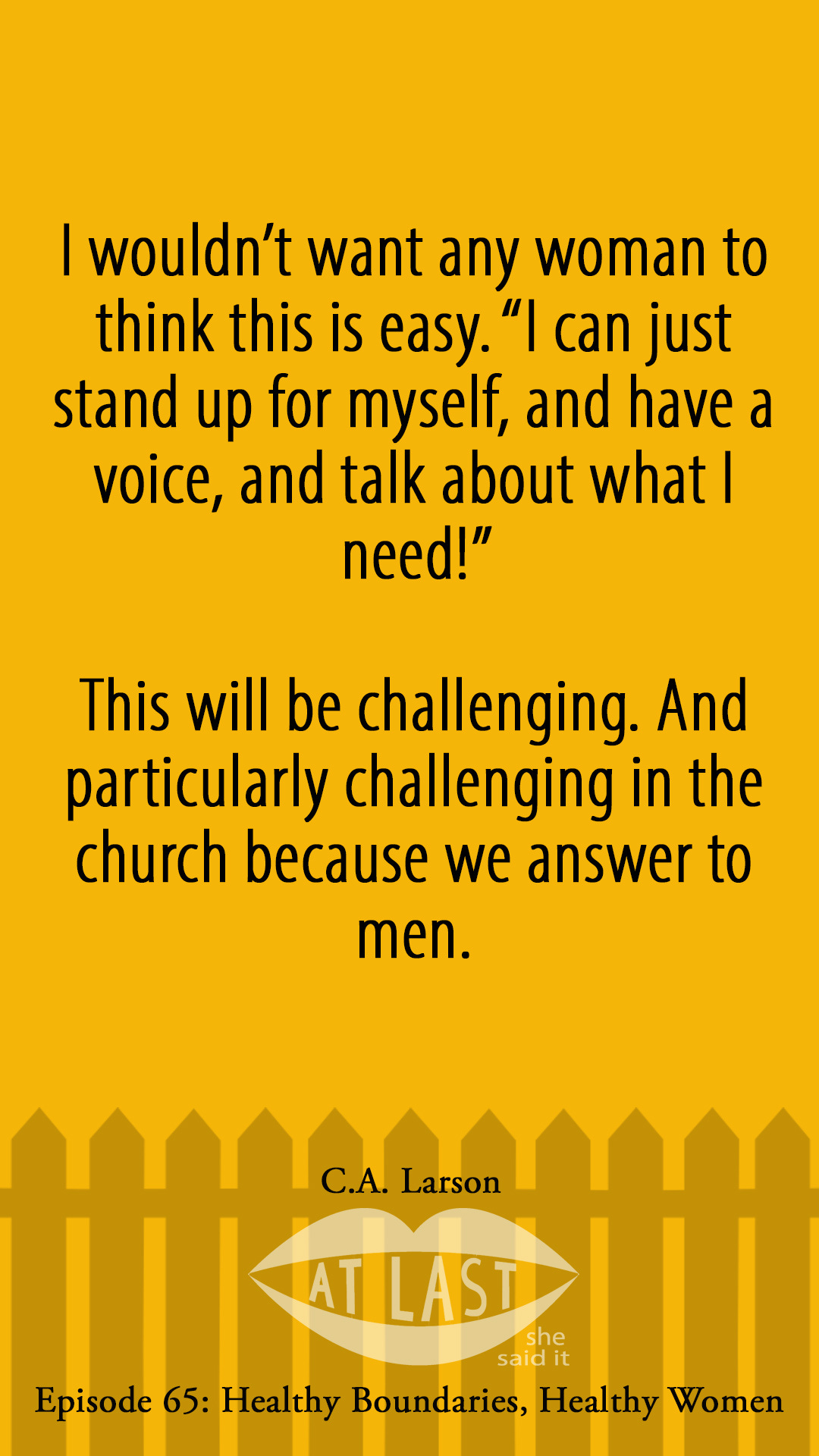ALSSI Newsletter
September 2021
About a decade ago a friend said to me, “The relationship is more important than being right.” It rang true to me then, and I have slowly been working on letting go of the need to be right ever since. I’m not talking about becoming a doormat and letting everyone walk all over me. I am talking about letting go of things that can harm individuals and relationships because I assume I know best.
Way back in Episode 2, I said that one of the things I knew was that there are worse things than being wrong. There’s a lot of debate right now in the Church about supporting our LGBTQ family members and friends too much. To that I would apply my mantra that the relationship is more important than being right.
Supporting and loving my gay daughter is more important than whatever the current policies or Church leaders say about that.
In The Naked Now: Learning to See as the Mystics See, Richard Rohr said: “Many of us have heard Dr. Phil, the TV therapist, tell couples in counseling that sooner or later every married person has to decide ‘do I want to be right, or do I want to be happy?’ He says he is sad and surprised at how many prefer to be right— and therefore are seldom happy. He then adds to the shock with his signature question, ‘And how is that working for you?’”
Father Rohr continues: “At this point in human and Western history, we have to ask the same question. ‘Christianity, how is this working for you?’ Remember, Jesus never said, ‘This is my commandment: thou shalt be right.’ But that is the only way that both the ego and the dualistic mind know how to frame reality. It is not working.”
He’s right. It isn’t working. For our church or for me. I’m not going to lie, sometimes this has been hard, with my Dualistic LDS Upbringing, to set down on the side of the road all that correct black-and-white thinking I had gathered for decades on my faith journey. Instead, I’ve been trying to pick up pebbles of wisdom on the road.
When my daughter came out to me as gay it was very clear that my gathered pebbles of wisdom would need to be applied. Love over rules. Always. Wisdom called me to love and support her and not give one single second of worry about whether I was doing this ‘right’ or not.
It’s a longer process for sure—wisdom gathering versus rightness gathering—but I’m in no hurry.
— Cynthia
The conversation continues…
At the end of the Season 3, we had the privilege of discussing boundaries—and some of the reasons Latter-day Saint women may struggle to set or maintain them in their church and personal lives—with therapist C.A. Larson. Many listeners have requested a copy of the list of healthy and unhealthy boundaries C.A. shared in that episode! You can find the list, as well as all the other wisdom she shared, in our transcript of Episode 65: Healthy Boundaries, Healthy Women, by clicking here.
Our listeners had much to say about this topic too—
“This is how I see things, ‘sometimes I say no to other people so I can say yes to myself.’”
— @beckiegclark
“I especially loved the story of the single woman who feels she can’t be exalted without a man. As a temple worthy, endowed sister, married to a nonmember, this is my fate too. I’m feeling more empowered to set up my healthy boundaries now. I will only accept what works in harmony with my home life. And I’m not sorry to say, that’s going to include callings. Thank you for the permission and validation.”
—@grgreeneyes4
“I especially loved the discussion about the importance of developing our own sense of self. LDS culture does a great job of teaching girls from a young age all about ‘shoulds.’ It’s taken me too long to understand that this idea doesn’t always line up with what Christ taught and what I understand about the principle of agency. I’m glad I know better now and that there is still time for me to do a better job with my daughters.”
—@becky.fry
“This was the most difficult podcast for me to listen to… […] For many decades, I believed that having NO boundaries between myself and any priesthood leaders from bishop on up to Joseph Smith, WAS showing Heavenly Father that I had faith. I was good. […] How can you regain something like a voice, thoughts, opinions, desires, plans, that you never really had? Didn’t really know how to develop them. The idea of actually having those attributes was frightening to me, the RISK of it all. Hiding behind Priesthood seemed like a better idea. Nope. Not a good idea. Totally backfires. There comes a price with trying to give your free agency away.”
—Cheryl Parks, fb
“Givers need to set limits because takers rarely do.”
— Rachel Wolchin
Looking ahead —
Our next Ladies’ Night In is on our calendar, and we hope it’ll find its way to yours too! For this gathering, come prepared to discuss anything you want to talk more about from Season 3. Maybe there’s an episode that left you with questions, or that you’ve continued to have thoughts about since you listened. Maybe you have different insights from the ones we shared. Maybe you have an experience you just need to process with women who will get it. Or maybe you just want to listen to other women discuss interesting ideas…
ALSSI Ladies’ Night In
Thursday, October 7
7:00 pm Mountain
link: https://meet.google.com/wyb-omqp-xnm
We hope to see you there!
We get a whole lot of interesting mail…
So thank you to everyone who takes time to write and share their thoughts. If we haven’t gotten back to you, please know it’s not because your email isn’t important to us! We’re working our way through them, and thank you for your patience.
One particular email caught our attention recently, and many of you also expressed interest in reading it. It’s from a currently-serving bishop who also describes himself as an At Last She Said It groupie! Needless to say, we think he’s definitely one of the good ones, so we wanted to shine a light on his hopeful works and words by sharing them here:
Dear Cynthia and Susan,
I am a bishop serving in […] who LOVES your podcast and, though I know your focus is women’s perspectives and voices, I hope my own “outsider’s” voice will still be somewhat beneficial. (And if not, then you can stop reading at any time and Cynthia can go back to eating her spicy Doritos, haha).I have long felt that the way the table is set for women in the Church needs reevaluating. Immediately after my call as a bishop in 2018, I started to attempt making whatever strides were in my power. The funny thing is, I had naively thought before my call that the bishop has a lot more power than, in actuality, he really does. This isn’t to say that there isn’t considerable weight and influence to the bishop’s station (I once mentioned in a testimony that the ward’s Fast Offerings budget was nowhere near enough to meet the ward’s welfare/self-reliance needs and immediately the next month our Fast Offerings donations more than doubled, which was humbling and inspiring, of course, but also intimidating—it really hit home that my calling, and the things I say while functioning in this calling, are not to be taken lightly). However, I was surprised at how constrained I was (and still am) by not only the authority of stake and regional leaders, but also by cultural pressures and expectations.
For example, probably the biggest illustration of this came when I decided to invite a member of the Relief Society Presidency to sit on the stand with us each Sunday in Sacrament Meeting. I had first gotten this idea before my call as bishop from reading Neylan McBaine’s Women at Church. Many of the thoughts and ideas expressed in her book had resonated with me and I had thought, “If I’m ever in a position to make any of these things happen, I’m going to do it.” So, as soon as I was called as bishop, I thought, “Perfect! I’m in a position to make ‘em happen!”
Oh silly, naïve Me-Of-The-Past…
What was that line you read in your episode Where’s the Priesthood in That?: “It’s difficult to be in charge and not really be in charge?” I know that bishops don’t face this dilemma anywhere near as much as female leaders do, but it’s been surprising how much my experience has allowed me to relate to that phrase on a direct level.
Anyway, we made it about two Sundays before a counselor in the Stake Presidency happened to be visiting our ward and noticed our Relief Society President sitting on the stand and she wasn’t giving a talk or a prayer but was just…there. He asked her after the meeting why she’d been sitting up there and she said that the bishop had invited her to do so (which, I might add, she was very excited and supportive in taking this “radical” step with me—and yes, it’s ridiculous that such a thing can even be labeled “radical”). He invited me to meet with him in my office where he expressed his discomfort sitting so closely to a woman on the stand and that there is no need to pull her away from her family during sacrament meeting and, in fact, she would probably prefer to sit with her family anyway. (And no, he hadn’t actually asked her whether or not she preferred that, but simply assumed it).
I explained my reasoning for inviting her on the stand in the first place (which I can share in a follow-up conversation if this ever leads to that) but that I would prayerfully consider his counsel and make a decision from there. He must have assumed the answer to my prayers would agree with his views because he was shocked when he found out I continued to invite the Relief Society President or her counselors to sit on the stand. So, it was about two weeks later, on a Sunday evening, that I received a call from the Stake President himself.
I listened to all this good brother had to say (and let me just insert here: I really do love and appreciate that man who was serving as our Stake President at the time—none of this is a criticism of him), and then I gently reminded him that, as per the Handbook, whenever he or other members of the Stake Presidency are not in our ward, and I am the one presiding at the meeting, it is my prerogative to invite whoever I want to sit on the stand. I tried to point this out without sounding combative. He said that whenever he or his counselors were presiding at our meetings, they would invite the Relief Society President to sit with her family, but that, yes, technically, there was nothing they could do on those other Sundays when they were not there presiding. So, it was an uncomfortable “agree to disagree.”
I was pretty open with my Relief Society President about all of this at the time, explaining to her that the Stake wasn’t overly comfortable with what we were doing, but that I felt it was important. I should add that at that point I gave my Relief Society President an “out.” I told her that if she was uncomfortable with the whole situation, that she could pull the eject lever at any time. She continued to be supportive, however, and so we continued with what seemed like the best possible compromise: she or one of her counselors would default to sitting on the stand with the bishopric unless we got wind of a member of the Stake Presidency visiting our ward. In that case, they would just plan on sitting with their families.
This “middle ground” (though it can hardly be called that) continued for a few more months until the whole thing just started to feel like a weird sort of power play between my bishopric and the stake—with our poor Relief Society President in the middle. I put out some feelers with some of the women in the ward, as well as our Young Women’s leaders and class presidents, to see if this really meant as much to them as I had thought it would, and with a few exceptions, the overall response was somewhat tepid. So, in the end, I felt like I was just causing contention rather than divine discomfort: I wasn’t benefitting who I’d thought I was, and I began to wonder if I was just stroking my own ego with some sort of faux “wokeness.”
It was around that time that there were some unique situations that arose and we had to release that Relief Society president and, though I initially told our new Relief Society President that I would give her some time to adjust before I asked her to likewise sit on the stand, I never pursued it again. That isn’t to say it isn’t still on my mind. In fact, we recently experienced boundary realignments and are in a new stake, so it is on my list of things to discuss with my new stake president. (Last time, I approached the idea with “forgiveness is easier than permission,” and it got messy, so this time I’m going to try it the other way around. We’ll see how it goes…).
However, the whole thing was a vivid delineation of where my so-called power has its limits (“power” isn’t the right word, but you know what I mean). I have continued to try to effect change in other ways and places. For a while we had one or two Young Women stationed outside the Mother’s Lounge in order to bring the sacrament in to any nursing mothers while it was being passed, but then we went through a dry period of no nursing mothers, so it sort of fizzled out. Another example of “good intentions but no traction”: I try to inform moms that, if they so desire, they can be the ones holding their baby during the baby blessing, but only one mom has taken me up on it, and it was because she is a single mother and the child was old enough to be nervous about being held by a group of strange dudes she didn’t recognize. Yet another example: I was disheartened to see that the new calling of Temple and Family History Leader was limited to being filled only by Melchizedek Priesthood holders, so I pushed back by making both that and the Ward Mission Leader callings as joint, husband-and-wife callings (so, on paper it says “Leader” and “Co-Leader,” which is the best we can do at this point, and this approach unfortunately excluded any singles as candidates, but I felt it was the best we could do).
All that being said, I really do try not to allow an “agenda” to trump inspiration—I really do seek to call whoever I feel the Lord wants me to call in these callings, or run things in the Ward in the way that the Lord wants them run (rather than how I, alone, think they should be run), but I hear from enough women who feel under-utilized, underappreciated, underwhelmed and overlooked, as well as see enough Young Women who opt out of moving into Relief Society when they turn 18 because they don’t see there the same kind of validation and fulfillment that they do elsewhere in society, that I believe that this really is the way the Lord wants things done. When I was called as a bishop, I didn’t just choose my counselors on my own: my wife helped me picked my counselors (which, I might add, was the advice of that Stake President I mentioned earlier, so I felt that in some ways, “He gets it,” even if he wasn’t willing to run with it quite as far as me). Having her counsel in that process proved invaluable. She brought to my attention a name I hadn’t even considered, who I ended up calling as my 2nd Counselor, which turned out to be the perfect choice. More recently, when I had to replace that counselor because of our boundary changes, I expanded the circle of women whose counsel I sought (an idea that came to me while listening to your podcast, I might add) and it was in discussing with our Young Women’s president about this topic that it finally hit me who I should call as my new 2ndCounselor (after weeks and weeks of praying about it).
So, I’ve seen glimpses of the potential we can affect with even a few changes; I have also seen the challenges that continue to stand in the way. I’ve got probably another year or two in this calling, so I’m sure I’ll rock the boat plenty more (though my end goal is not to rock the boat—I’m just not okay with trying to move the boat with only one paddle!). I am sharing my experience with you to not only show support but also invite more ideas and suggestions for how I can give women more space to spread their wings at church. Whether you sisters share these suggestions with me directly through correspondence, or indirectly through your show’s content, I always welcome ideas on how I can open the door a little wider for my sister saints (or even how I can get out of the way and let them open the door for themselves).
Thank you both for all that you do. It’s not only enjoyed, it’s necessary.
Later update: In the time since that email, I've spoken with my new stake president about inviting the RS president to sit on the stand with us and he's been very supportive, which is nice. Like you said, nothing's going to happen overnight, but I'll take the baby steps as successes anyway.
(Thanks so much for sharing, Bishop, for your efforts on your sisters’ behalf, and for your willingness to allow us to share your email with our other listeners! And as always, our sincere thanks for listening. That’s definitely going to be the first step toward change.)
“Daring to set boundaries is about having the courage to love ourselves even when we risk disappointing others.”
— Brene Brown
Now, if you’re still with us…let us reward you with CAKE!
I’ve spent a lot of time the past 10 years being home alone, but I haven’t let that curtail my cake habit. So I’ve developed a few small cake recipes that are quick and easy to make when the only person who’s going to be eating is Me, Me, Me. If it’s Friday night, there’s a good chance my house smells like this. — S.
Susan’s All-the-Time Chocolate Cake
1 c all-purpose flour
1/4 c plus 2 Tbsp unsweetened cocoa powder
1/2 tsp baking soda
1/4 tsp salt
1/2 c butter, melted and warm
3/4 c packed brown sugar
1/2 c sugar
2 large eggs
1 tsp vanilla
1/2 c hot water
Frosting:
1/4 c cocoa
2 c powdered sugar
2 Tbsp butter, softened
1/8 tsp salt
3 Tbsp milk
2 tsp vanilla
Combine all ingredients and beat well, adjusting powdered sugar and milk as needed to get desired spreading consistency.
Heat oven to 350 °. Grease bottom of 8” or 9” pan (square or round—I use square). In a small bowl, whisk flour, cocoa powder, soda, and salt. In large bowl, combine melted butter and brown sugar with a spoon or spatula. Add the eggs and vanilla; stir until well blended. Add dry ingredients all at once, stirring just until moistened. Pour the hot water over the batter; stir until it’s incorporated and batter is smooth. Scrape into pan. Bake 30 mins or until toothpick inserted in center comes out clean. Cool completely before frosting.
Serves…one?
What about Season 4?
Our seasons run 5 months on, 2 months off…so we’ll be back with new episodes starting in November! We already have some great guests and topics on the schedule, and recording is underway. Thanks so much for your continued support of the At Last She Said It project and this growing community.
— Cynthia and Susan










